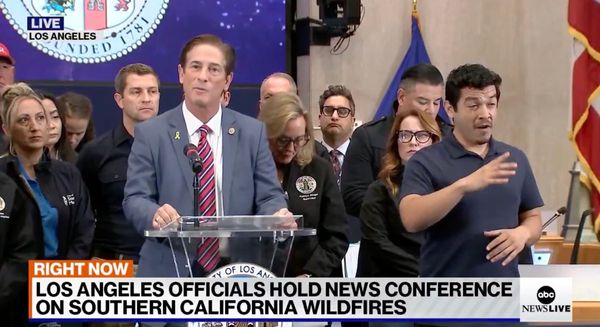
Almost 90% of marine animals caught in shark nets off New South Wales beaches over the past year were non-target species such as turtles, rays and dolphins, according to new data published by the state government.
Marine conservation groups say release of the annual data comes at a critical time as the Minns government weighs up whether to continue with the deterrence strategy.
The new figures show that of the 228 animals ensnared at NSW beaches during the 2022-23 season, just 24 were target sharks (18 white sharks and six tiger sharks), while the remaining 204 animals were non-target species.
More than half (63%) of all animals caught died as a result of the entanglement.
The 204 non-target species comprised 120 smaller sharks, 58 rays, 14 turtles, 10 mammals (eight dolphins and two seals) and two finfish.
The animals included 16 critically endangered grey nurse sharks, two of which were killed, and two common dolphins and six Indo-Pacific bottlenose dolphins, which are classed as a protected species under national environmental laws. None of the dolphins caught survived.
Fifty-nine of the animals (26%) caught were species classified as either threatened or protected marine animals under Australian laws.
But the Humane Society International (HSI) said this figure grew to 162 (71%) when classifications under the Convention on International Trade in Endangered Species (CITES), the Convention on Migratory Species and the International Union for Conservation of Nature (IUCN) were also factored in.
“This data is not saying anything new – it’s saying the same thing it’s been saying for the past 10 years,” the marine biologist and HSI campaigner Lawrence Chlebeck said.
“[The NSW government] should recognise this program is outdated and has an annual cost for our precious marine wildlife.”
He said the government should “ditch the nets” and rely on methods it had invested in, such as smart drumlines, education and drone surveillance.
Dr Leonardo Guida, a shark scientist at the Australian Marine Conservation Society, said communities wanted modern-day “beach safety standards that improve safety for people and wildlife alike – solutions like drones and the tagging and tracking of animals”.
“Public sentiment and the science are in alignment – come September, the NSW government should keep the nets out and the drones up,” he said.
Nets, which are installed between September and April each year, are due to be in place again at 51 beaches between Newcastle and Wollongong in less than five weeks.
In its response to the 2021-22 annual report on the meshing program, the NSW threatened species scientific committee, which advises the government on threatened wildlife, said the “consistent annual record of non-target species being caught in nets is of significant concern”.
The committee said the program was not meeting its two objectives – to reduce the risk to people from shark bites and to ensure the meshing program did not jeopardise the survival or conservation status of threatened wildlife. The committee supported a change in management strategy.
The government has said it will not make a decision on whether the nets will be rolled out until it hears from eight coastal councils.
Waverley, which is home to some of Sydney’s most famous beaches including Bondi and Bronte, is one of four councils that told Guardian Australia it would advocate for an alternative to the shark meshing program.
A NSW department of primary industries spokesperson said no beachgoers suffered “any injuries due to shark interactions at any meshed beaches in the 2022/23 meshing season”.
“At this stage, no decisions have been made about the future deployment of shark mesh nets,” the spokesperson said. “A decision will be made by the NSW Government before the start of the 2023/24 swimming season and following the tender and council consultation processes.”
• The main image above this article was changed on 2 August 2023 to provide a more accurate representation of shark nets used on NSW surf beaches. An earlier image displayed a completely enclosed netted harbour beach.







